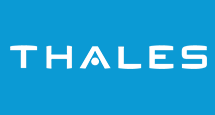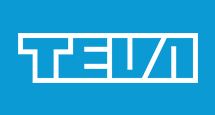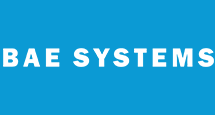Visiongain Publishes Decentralised Clinical Trials Market Report 2023-2033
17 April 2023
Visiongain has published a new report entitled Decentralised Clinical Trials Market Report 2023-2033: Forecasts by Indication (Oncology, Cardiovascular, Immunology, Respiratory, Others), by Study Design (Interventional, Observational, Expanded Access), by End-users (Pharmaceutical and Biopharmaceutical Companies, CROs, Others), by Component (Mobile Healthcare, Telemedicine, Wearable Devices, Web-based Technology, Others) AND Regional and Leading National Market Analysis PLUS Analysis of Leading Companies AND COVID-19 Impact and Recovery Pattern Analysis.
The decentralised clinical trials market was valued US$7,668.6 million in 2022 and is projected to grow at a CAGR of 7.6% during the forecast period 2023-2033.
Challenges in Maintaining Participant Engagement
Despite the potential benefits of virtual methods in facilitating recruitment and retention of clinical trial participants, life sciences companies continue to encounter challenges in maintaining participant engagement. The observed phenomenon can be attributed to the varying preferences of patients towards decentralised healthcare delivery, which some find convenient, and face-to-face interaction with clinicians, which others prefer.
The utilisation of decentralised trials presents a significant prospect to involve patients who may otherwise face geographical or socioeconomic barriers in accessing a physical research site. It is crucial to avoid wasting this opportunity by utilising a universal approach for patient engagement. Alternatively, diverse methodologies must be formulated to effectively cater to the requirements of distinct patient cohorts.
How has COVID-19 had a Significant Impact on the Decentralised Clinical Trials Market?
The COVID-19 pandemic has had an initial negative impact on clinical trials, but it has also served as a catalyst for the medtech industry, revealing novel prospects for modernization. It has been observed that sponsors are increasingly recognising the potential benefits of decentralisation and digitization of clinical trials, as it enables them to adopt novel and more efficient approaches for bringing their products to the market.
The implementation of DCTs may result in increased heterogeneity in clinical trials, thereby facilitating the realisation of a paradigm of authentic individualised medicine, wherein the appropriate intervention is administered to the suitable patient at the appropriate juncture.
The advent of digital trials has necessitated the employment of technology to enhance efficiency and provide support in the corporate sector. As we progress, it is imperative to have contemporary solutions for clinical operations and data management. The utilisation of cloud-based solutions that provide a unified platform for managing data, content, and processes enables enterprises to construct and execute a greater number of experiments. The utilisation of cloud-based solutions has been observed to enhance the efficiency of electronic data collection, coding, monitoring, research site document exchange, and trial management and operations oversight. This is achieved by enabling study stakeholders to access data from a centralised location, thereby improving collaboration and teamwork.
How will this Report Benefit you?
Visiongain’s 278-page report provides 120 tables and 158 charts/graphs. Our new study is suitable for anyone requiring commercial, in-depth analyses for the decentralised clinical trials market, along with detailed segment analysis in the market. Our new study will help you evaluate the overall global and regional market for Decentralised Clinical Trials. Get financial analysis of the overall market and different segments including indication, study design, end-users, component and capture higher market share. We believe that there are strong opportunities in this fast-growing decentralised clinical trials market. See how to use the existing and upcoming opportunities in this market to gain revenue benefits in the near future. Moreover, the report will help you to improve your strategic decision-making, allowing you to frame growth strategies, reinforce the analysis of other market players, and maximise the productivity of the company.
What are the Current Market Drivers?
Growing Adoption of Advanced Technologies is Boosting Industry Growth
The CROs that offer the backbone of clinical trial services are investing in the emerging set of decentralisation features. Innovators in technology are also investing and combining point solutions that can deliver sponsors with more seamless and comprehensive offers. A confluence of growing technologies and services has enabled the relocation of clinical-trial activity closer to patients. Electronic consent, remote patient monitoring, tele healthcare, and electronic clinical-outcome assessments enable investigators to keep in touch with study participants without requiring in-person visits. More treatments can take place away from research facilities thanks to mobile and home healthcare, as well as alternative-care settings.
The digital technologies utilised for data collecting vary depending on the project, but can include wearable/sensor devices, telemedicine, eConsent, electronic clinical outcome assessments, and electronic health records. Mobile technologies are frequently utilised to replace conventional records with electronic records, as well as to collect data through wearable sensor devices. Vitals including blood samples and blood pressure can be collected at home using in-home services. The adoption of digital health technology by consumers has increased year after year. The COVID-19 pandemic has also boosted physicians' comfort using remote technologies. Remote data collection tools including eCOA, novel sensors, camera, voice, actigraphy, and video are gradually being validated, setting standards for their widespread use.
The leading companies including Parexel, IQVIA, and Medidata have gained a vast experience in Decentralised clinical trials offerings. For instance, as of September 2021, Parexel provided over 160 Decentralised clinical trials and more than 200 remote patient engagement approaches combined into trials including patient recruitment & retention platforms, patient insight projects, and e-visits/video dosing regimens. Therefore, the growing adoption of advanced technologies is boosting the market growth.
Rising Presence of CROs in Emerging Market Driving Industry Growth
Pharmaceutical and biopharmaceutical companies have successfully established various sourcing models and service lines in emerging markets over the past decade. Sourcing from the emerging markets began with clinical trials to take advantage of the large patient population, but these geographies today deliver their inherent professional services regardless of the placement of clinical trials. Starting with data entry services, pharmaceutical companies and CROs started sourcing from these geographies and grew to include safety programming, data management, biostatistics, scientific writing, and regulatory operations. India was the first destination of choice for outsourcing in emerging markets because of its many advantages and was followed by units developed in China largely because of its commercial relevance. Many emerging countries such as Russia, Brazil, and Philippines are being choices for specialized services such as pharmacovigilance, bioequivalence studies, medical call centres, and others. The placement of clinical trials continues to increase in Latin America, Eastern Europe, and China.
Some of the major CROs that are expanding their presence in emerging markets are Covance (Lab. Corp.); IQVIA; Syneos Health; Parexel; PPD; and ICON. For instance, in April 2020, ICON signed an agreement with Pfizer to provide clinical trial planning, implementation, administration, and conduct skills on a worldwide scale including Asia Pacific and Latin America. Also, in July 2021, Paraxel collaborated with Cancer Hospital Chinese Academy of Medical Sciences for development of patient -based protocol design and techniques in China in connection to decentralised clinical trials. This is such developments are expected to propel the market growth.
Where are the Market Opportunities?
The acquisition of supplementary information through novel remote sensors and wearables is a highly advantageous feature of decentralised techniques. However, it should be noted that these methods of data collection are still in the process of development. There exist numerous inquiries regarding the most dependable methodologies and the means to juxtapose data acquired through disparate approaches.
Decentralised models have the potential to collect identical information through both virtual and in-person encounters, whether for a single patient or within a study. In certain instances, regulatory bodies may require evidence demonstrating the comparability of data gathered from disparate locations, in order to ensure that such data does not exert undue influence on the ultimate outcome of the clinical trial. Clinical trials can be formulated to address this predicament. In the context of remote healthcare delivery, a healthcare practitioner has the ability to remotely monitor and instruct patients in the proper technique for obtaining their physiological measurements. This approach enhances patient autonomy and promotes the accuracy and consistency of the collected data.
Several approaches for remote data collection are currently under development on a case-by-case basis. Nonetheless, within the industry, it is imperative to scrutinise each technique of data collection and determine the optimal means to enhance dependability and attain authentication for that particular approach.
Competitive Landscape
The major players operating in the decentralised clinical trials market are CASTOR EDC, Clinical ink, CLOUDZBY, INC., Dassault Systèmes (Medidata Solutions, Inc.), ERGOMED PLC, FLORENCE HEALTHCARE INC., ICON PLC, IQVIA Holdings, Inc., Labcorp Drug Development, Medable, Inc., Medrio Inc., Oracle Corporation, Parexel International Corporation, PPD (Thermo Fisher Scientific Inc.) and Syneos Health. These major players operating in this market have adopted various strategies comprising M&A, investment in R&D, collaborations, partnerships, regional business expansion, and new product launch.
Recent Developments
• In April 2023, Clinical ink announced its strategic partnership with Mural Health, a next-generation participant management platform. With this partnership the Clinical ink eSource technology platform, which includes Direct Data Capture (DDC), electronic Clinical Outcomes Assessments (eCOA), Patient Engagement, eConsent, and digital biomarkers, now fully supports participant reimbursement and travel assistance, powered by the Mural Link platform.
• In March 2023, Syneos Health signed a multi-year agreement with Microsoft. Utilizing Microsoft Azure services, Syneos Health has developed an advanced analytics platform that enables agile deployment of machine learning (ML) supporting the analysis, design and execution of clinical trials and commercial programs worldwide.
Notes for Editors
If you are interested in a more detailed overview of this report, please send an e-mail to contactus@visiongain.com or call +44 (0) 207 336 6100.
About Visiongain
Visiongain is one of the fastest-growing and most innovative independent media companies in Europe. Based in London, UK, Visiongain produces a host of business-to-business reports focusing on the automotive, aviation, chemicals, cyber, defence, energy, food & drink, materials, packaging, pharmaceutical and utilities sectors.
Visiongain publishes reports produced by analysts who are qualified experts in their field. Visiongain has firmly established itself as the first port of call for the business professional who needs independent, high-quality, original material to rely and depend on.
Recent News
Visiongain Publishes Cell Therapy Technologies Market Report 2024-2034
The cell therapy technologies market is estimated at US$7,041.3 million in 2024 and is projected to grow at a CAGR of 10.7% during the forecast period 2024-2034.
18 April 2024
Read
Visiongain Publishes Automation in Biopharma Industry Market Report 2024-2034
The global Automation in Biopharma Industry market is estimated at US$1,954.3 million in 2024 and is projected to grow at a CAGR of 7% during the forecast period 2024-2034.
17 April 2024
Read
Visiongain Publishes Anti-obesity Drugs Market Report 2024-2034
The global Anti-obesity Drugs market is estimated at US$11,540.2 million in 2024 and is expected to register a CAGR of 21.2% from 2024 to 2034.
12 April 2024
Read
Visiongain Publishes Inflammatory Bowel Diseases (IBD) Drugs Market Report 2024-2034
The global Inflammatory Bowel Diseases (IBD) Drugs market was valued at US$27.53 billion in 2023 and is projected to grow at a CAGR of 6.2% during the forecast period 2024-2034.
















